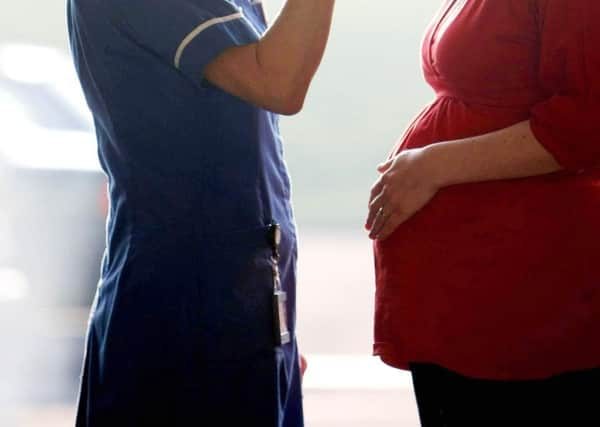YP Comment: Moral maze of abortion policy. Questions of medical ethics


And when they effectively disown Cathy Warwick, the chief executive of the Royal College of Midwives, for the suggesting that the abortion time limit be scrapped, their voices must be heard loudly and clearly.
Effectively Professor Warwick, who is also chairman of trustees at the British Pregnancy Advisory Service, is saying that pregnancies could be terminated right up to the birth of an unborn child – the current limit is 24 weeks and there are those, it should be remembered, who believe this rule should be tightened still further because of the medical profession’s new ability to save the lives of babies born prematurely.
Advertisement
Hide AdAdvertisement
Hide AdOn these complex questions of medicine, ethics and morality, many will concur with Yorkshire MP Andrew Percy who has gone on the record to question whether Prof Warwick has a conflict of interest because the stance of the BPAS, which favours a relaxation in the rules, is at odds with the express wishes of those health professionals who work in the midwifery profession.
Of course, every sympathy goes to those mothers who discover during the latter stages of their pregnancy that their new child will have little or no quality of life. Their physical and emotional needs are very different to those women harbouring doubts about motherhood, the demands of looking after a baby and the responsibility that this entails.
Yet this does not allow Prof Warwick, or others for that matter, to take unilateral decisions without consulting others. Matters like abortion are issues of conscience which should be determined in Parliament following a free vote of all MPs. The issue is one which transcends all aspects of family policy and is too important to be hijacked by one individual.
High speed hiatus. HS2 lessons for Ministers
LEAVING ASIDE the debate about the precise location of the HS2 stations proposed for Leeds and Sheffield, and how they should be integrated with other rail services, it is crucial that they are planned properly and command widespread public confidence. If this does not happen from the outset, it will be too late to reverse costly and flawed decisions once the stations have been built.
Advertisement
Hide AdAdvertisement
Hide AdHowever Transport Secretary Patrick McLoughlin, speaking in Leeds yesterday at the launch of a new report by the National Infrastructure Commission, does need to take stock of two key points. First, local councils do not necessarily possess the expertise to ensure these projects deliver the best returns for the taxpayer – and local economy.
As Mr McLoughlin will be aware, the Leeds trolleybus saga – an ill-conceived plan rejected by a Government planning inspector following a convoluted public inquiry – provides an object lesson in how not to develop a transport policy. If Leeds Council can’t get this right, how can they be given responsibility for a development project of this magnitude?
Second, George Osborne has entrusted the renewal of Britain’s infrastructure, and oversight of HS2, to Lord Adonis who is chairman of the National Infrastructure Commission. However the peer, who was Transport Secretary in Gordon Brown’s government, has also been approached by Sadiq Khan, the Mayor of London, to become deputy mayor with the task of developing new rail services and so on. If Lord Adonis combines both roles, it will suggest, once again, that HS2 is for the benefit of London and not the whole country.
Changing attitudes: Young Royals get heads together
ALTHOUGH the workload of the younger Royals was called into question as the Queen celebrated her 90th birthday, their willingness to support unfashionable causes can only help society. The plight of war veterans is now in the spotlight thanks to the work of Prince Harry who used last week’s Invictus Games to call for greater awareness of those left mentally traumatised by their experiences on the battlefield.
Advertisement
Hide AdAdvertisement
Hide AdNow Harry is teaming up with the Duke and Duchess of Cambridge to support the newly-launched Heads Together initiative which will pool the work of a number of charities so the consequences of mental illness are not overlooked by NHS policy-makers.
As The Yorkshire Post’s campaign on loneliness has proven, it is the causes of unseen health conditions which are invariably the most burdensome to the NHS. Out of sight must not be out of mind – and this Royal intervention can only help raise the plight of those illnesses and conditions which were once taboo.